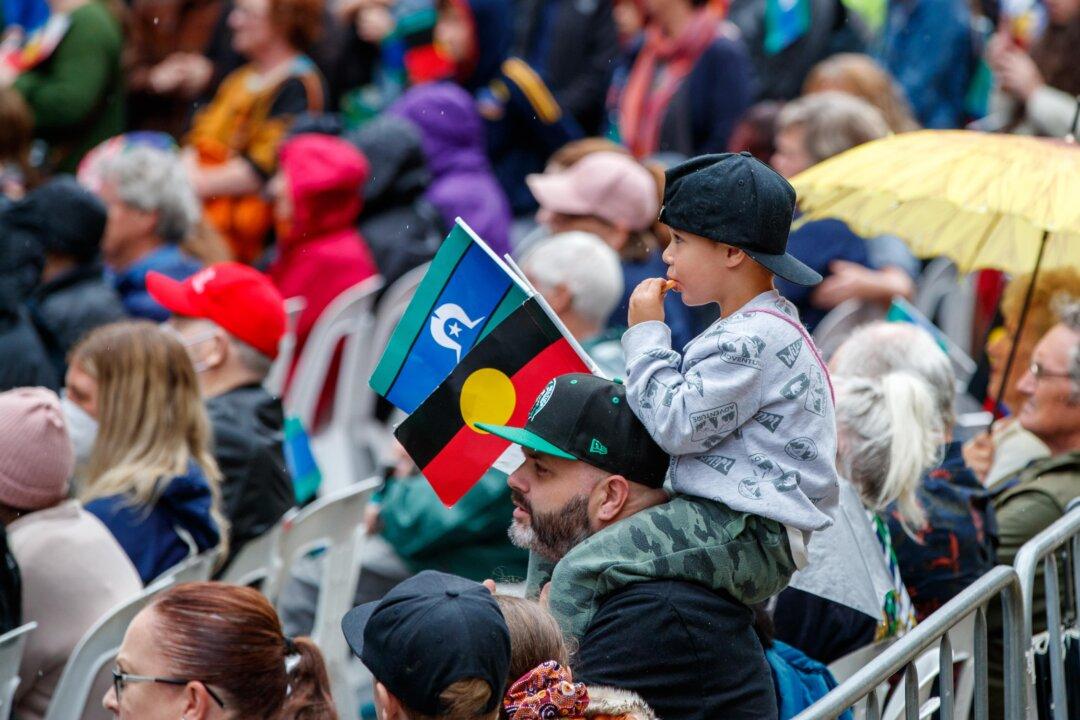
Big crowds are seen outside South Australia’s parliament in Adelaide, Australia, on March 26, 2023. AAP Image/Matt Turner
Commentary
On May 2, The Epoch Times published
an opinion piece entitled “Yes Is for Bringing Australia Together and Moving Forward.”
